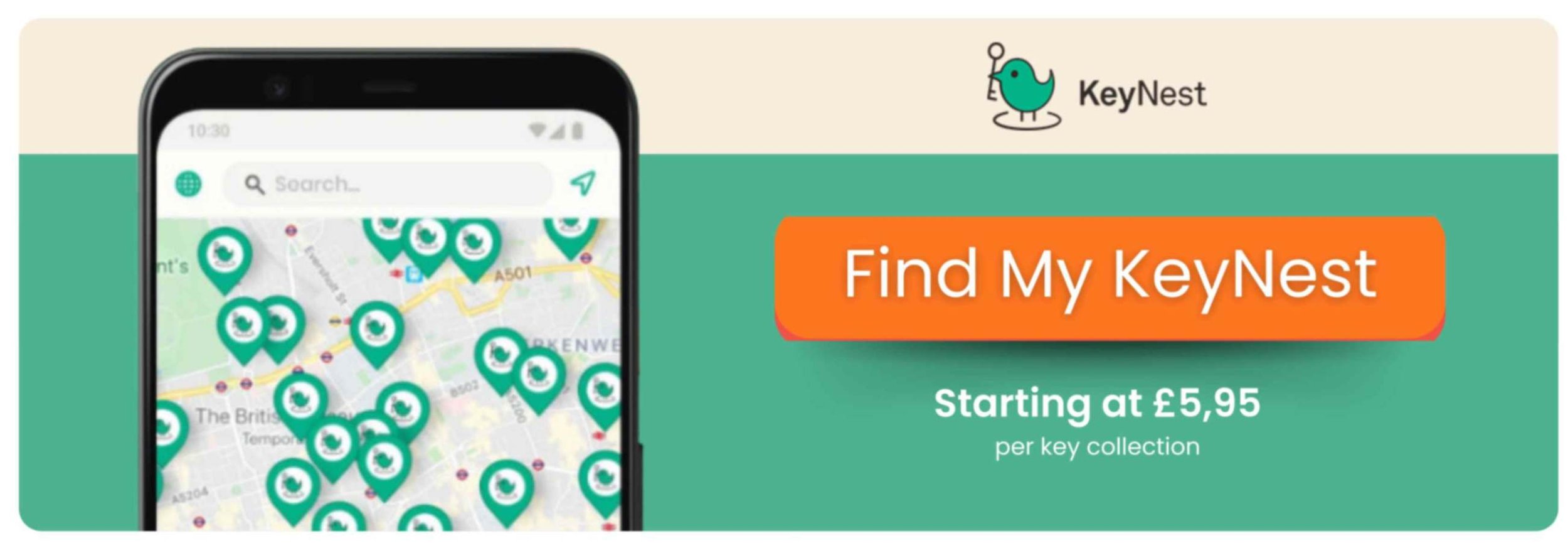Over 1500 key exchange locations nationwide
Guide To Handle Top 3 Common Airbnb Guest Complaints
Handling Airbnb guest complaints is an inevitable part of hosting, no matter how much effort you put into perfecting the guest experience. Even the most well-maintained properties and attentive hosts can face issues that lead to dissatisfaction. Guest complaints can vary from minor inconveniences to significant concerns, and how you respond can make all the difference in your reviews and ratings. Understanding the most common complaints and preparing effective solutions not only protects your reputation but also ensures guests feel valued and heard.
This comprehensive guide will walk you through the top three Airbnb guest complaints and how to handle them efficiently. By being proactive, empathetic, and solution-oriented, you can turn a potentially negative experience into a positive one. Addressing guest concerns promptly not only prevents escalation but also shows your commitment to hospitality. As an Airbnb host, your goal should be to create a seamless experience that exceeds guest expectations.
In doing so, you build trust, increase repeat bookings, and encourage positive word-of-mouth. The following sections will cover detailed approaches for each common complaint, ensuring you are fully equipped to handle them with confidence. Whether you're a new host or a seasoned one, this guide will provide practical insights and strategies to maintain a stellar hosting record. After all, happy guests lead to better reviews, and better reviews lead to more bookings. Let’s dive into the specifics of how to manage the most frequent Airbnb guest complaints like a pro.
1. How To Manage and Prevent Cancelled Bookings?
Of course, you can't control cancellations made by guests. However, you can mitigate these inconveniences by setting your own cancellation policies.
Airbnb offers various options, ranging from "flexible" to "very strict." These policies essentially dictate your rules regarding cancellations and full or partial refunds, determining how refunds are handled in the event of a cancellation. It's important to carefully consider your choice—a stricter cancellation policy offers better financial protection and reduces the risk of fraudulent bookings, while a more flexible policy may attract more bookings. Select the one that best suits your vacation rental's priority, and your tolerance for cancellations.
If your cancellation policy allows it, guests who cancel will automatically receive a full refund, or a partial one. However, if a guest cancels after the allowed period allowed, those terms will apply. If payment is due to you, you will generally receive the money within 24 hours after the guest's scheduled arrival time. However, cleaning fees, taxes, and optional extras (such as breakfast) will always be refunded if the guest cancels before arrival.
Exceptions: In some cases, your cancellation policy may be overridden, and the guest may be entitled to or request a refund exceeding the standard one outlined by your policy:
The guest cancels due to a “major disruptive event”
The guest cancels because they encounter a problem upon arrival at the property.
In such cases, the guest may be protected under the Airbnb Help Centre Rebooking and Refund Policy. However, they must notify you of the problem and attempt to resolve it directly with you before submitting a claim. If the issue persists and the guest cancels after arrival, they must leave your property immediately. In such cases, you will not receive any payment, or the refund amount to the guest will be deducted from your payment. In most cases, Airbnb will first seek to confirm the guest's claim by contacting you. You also have the option to dispute the issue by contacting Airbnb.
Finally, after a cancellation, you'll likely want to attract new guests to fill the vacant dates. You can encourage quick bookings by offering special deals, such as discounts or added perks.
2. What if My Guests Don’t Follow the House Rules?
It’s possible that, once settled into your Airbnb, your guests may not respect the rules you've set for your property, such as non-smoking areas, quiet hours, recycling guidelines, or the prohibition of hosting parties. This situation can be bothersome, both financially and for your neighbors.
For instance, when guests smoke in designated non-smoking areas, it can create unpleasant odors and leave unwanted traces in your property. This may require additional cleaning, leading to extra costs, and it could potentially affect the quality of the experience for future guests. Unauthorized parties can also cause damage to your property, while excessive noise may disturb the neighbors, creating potential conflicts with them.
To avoid these problems for both hosts and guests, as well as potential conflicts and bad reviews, we recommend being extremely clear about your rules from the outset.
Update your vacation rental's description and house rules to include all your guidelines, as well as local regulations or restrictions related to noise, parking, and public health. Although Airbnb prohibits parties and events, it’s important to reiterate this ban in your welcome book.
Don’t just mention these rules in your listing and during check-in— send the house rules in a private message before the guests' arrival, and post them in the property. This can also simplify the process if you need to contact Airbnb to make a claim.
Finally, you can specify in your rules that guests will be subject to a fine if they fail to comply, which will help prevent unpleasant surprises for the guests.
How to Prevent Unauthorized Parties?
If you’re concerned that the house guidelines alone may not be enough to deter parties and excessive noise, there are other options available. If you have reason to believe a guest is planning to host a party, you can cancel the reservation before their arrival.
However, Airbnb will require you to provide evidence to support your decision, so you need to get familiar with Host Cancellation Policy. You can also discourage guests by using noise detection software and mentioning this measure in your listing. Remember, communication is key in the Airbnb experience. Additionally, always make sure to take photos or videos to document the state of your rental property before allowing a new guest to stay, to have proof of the condition of the property. This will reduce the likelihood of dispute if something is missing or broken.
Moreover, you can reduce the risk of hosting unauthorized parties by declining bookings of less than 2 or 3 nights or by carefully reviewing the guests' profiles. Check their reviews to ensure they haven’t had issues with other hosts in the past, and engage in a conversation to understand the nature of their trip and confirm their awareness of your house rules.
We also advise informing your neighbors about your activity as an Airbnb host. Share your contact information with one or more trusted neighbors and ask them to reach out to you in case of an unauthorized party or unforeseen problem.
If, despite all the precautions, you find after your guests' departure that they caused significant damage or hosted unauthorized parties, you can request compensation using Airbnb’s Resolution Center. Airbnb will intervene, and if the platform concludes that the guest is responsible, their payment method may be charged accordingly.
3. What Can I Do if My Airbnb Guests Are Late?
Delays in arrival and departure times can be problematic, especially if you have to wait for a long time or come late at night to hand over the keys.
To avoid these situations, communicate clearly about the check-in and check-out times at the beginning of the booking process. Ensure your guests understand these times to minimize delays.
You can also use key storage services like KeyNest for self check-ins and check-outs, simplifying key management and enhancing the experience for both you and your guests.
About Us
KeyNest offers you a convenient service for storing and exchanging your property keys. You can drop off a key at any of the 7,000+ locations in our network, so there’s one such Point located next to your property.
Guests, cleaners or contractors can then collect the key securely from a KeyNest Point or KeyNest Locker which is usually open 24/7. You'll be notified each time the key is picked up or returned, and you can even customize check-in and check-out times. By leveraging technology and a global network of locations, KeyNest continues to redefine property management, offering solutions tailored to meet the evolving needs of the rental market..
KeyNest has an ever-expanding global network of locations located just minutes from your property. To find out more you can contact us.


